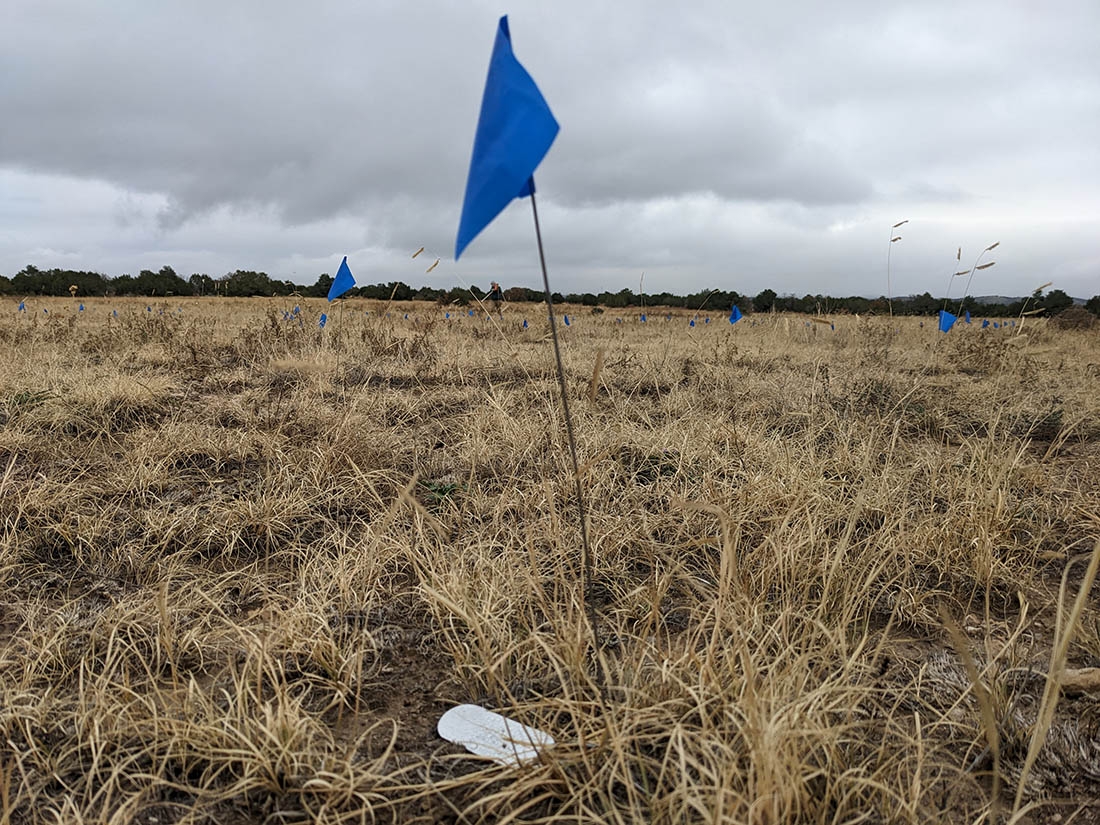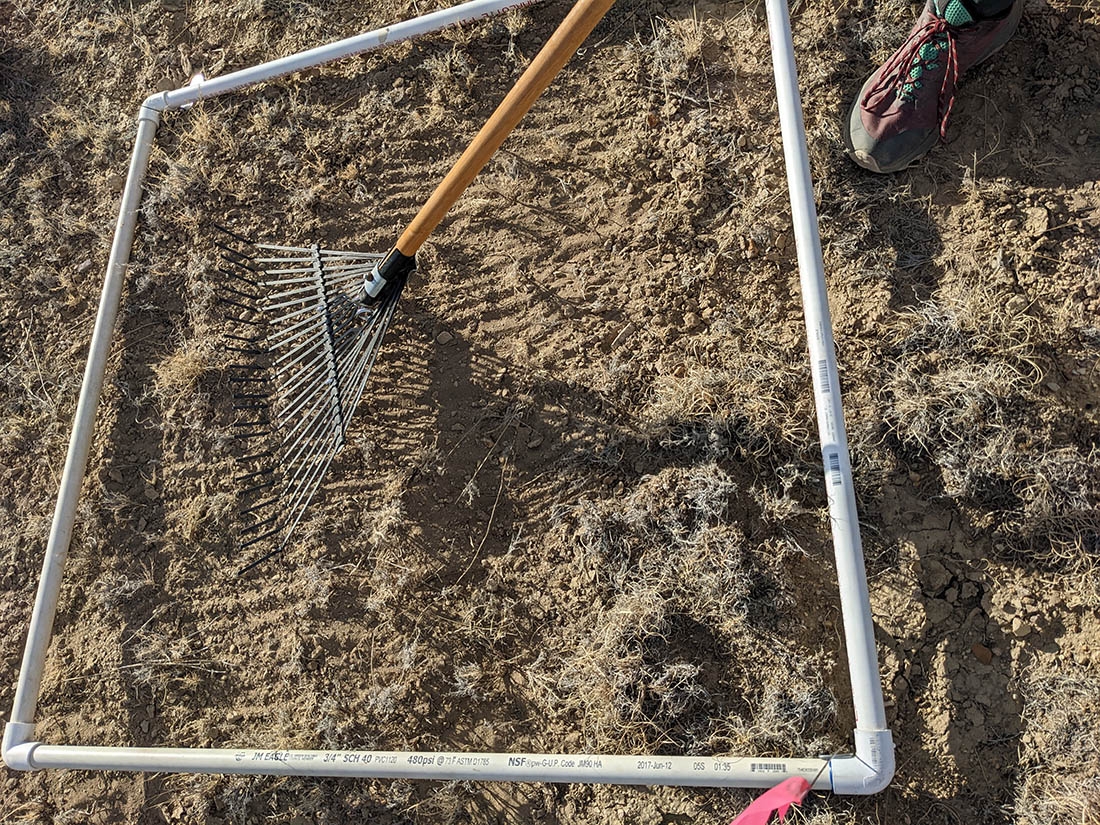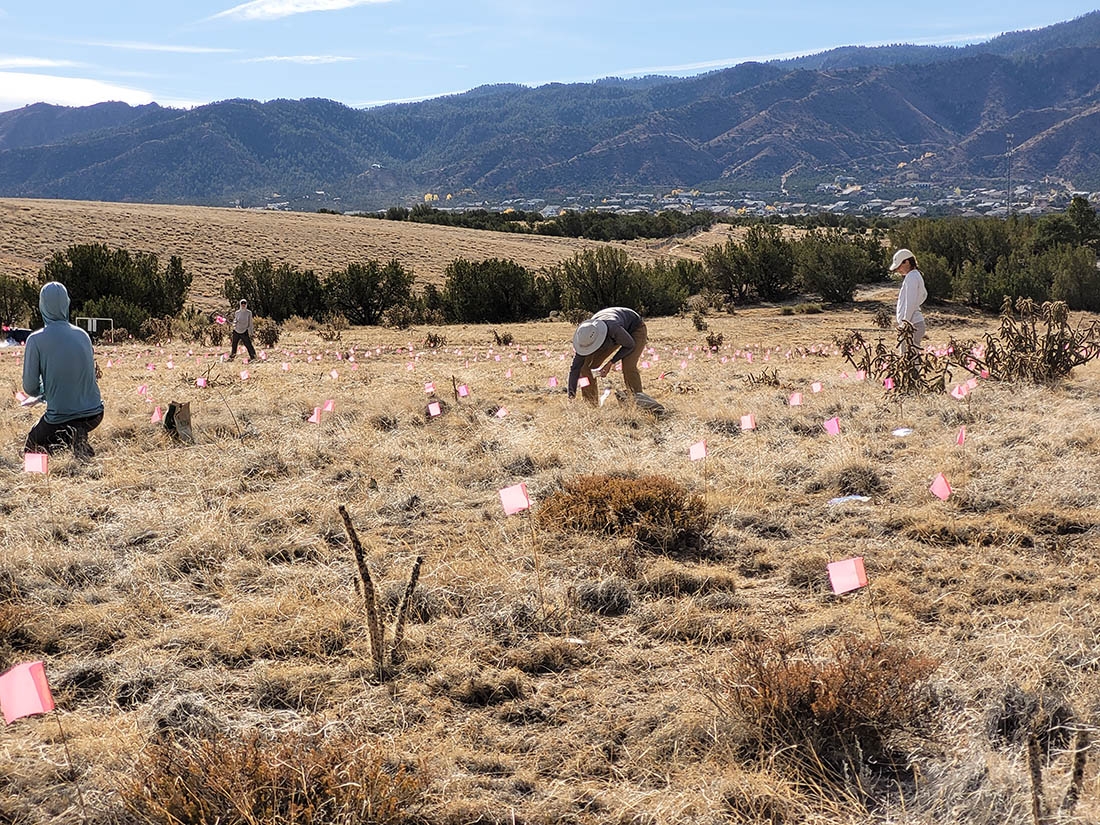Studying Effects of Genetic Diversity on Plant Population Performance (Hopefully)
Sometime around June 2021 an idea started forming in my mind. I was starting a new job as a scientist in the Research and Conservation Department. I wanted to study the effects of genetic diversity on plant population performance. My background is in studying adaptation and persistence of wild populations of plants in changing environments. My new job was to look at related questions in the context of ecological restoration.
Ecological restoration is the process of returning ecological function following degradation to an ecosystem. One common method is planting native species. A major challenge, however, is establishment and long-term persistence of these native species. Some scientists and restoration practitioners argue that using plants that are the most locally adapted is best, while others espouse that using the most genetically diverse source(s) is likely best given environmental uncertainty. I wanted to design an experiment to test these ideas.
Two-hundred thousand seeds, 1,000 survey flags, 500 plots, 36 large spice shakers and 10 researchers later we had set up this experiment at two sites near Canyon City, CO. Next came a winter of hoping and thankfully above-average spring precipitation. Finally this past June, I started reaping the reward as we collected data on hundreds of seedlings that emerged in the research plots.
I thought I had designed the experiment to be fool proof such that any data we were able to collect would yield interesting results. However, as is so often the case in science, the data is complicated. It’s still too early to say if our results will give a clear picture to address our initial hypotheses. What is clear so far is that everything is context dependent. The results rely on multiple variables, some that we can measure and some that we cannot.
While this makes communicating the science challenging, it is not uncommon. So often in science we try to present clear stories, when in reality data is messy and results are inconclusive. I think it’s important to acknowledge this and even celebrate it. Science is iterative and slow, and while it’s not the only way of obtaining knowledge, it is a powerful method. My experiment might not yield the clear long-term dataset that I hoped for, but it is still valuable. I have learned a lot already from the experience and sharing the results, whatever they may be, will be important.
This article was contributed by April Goebl, assistant research scientist.
Gallery




Add new comment